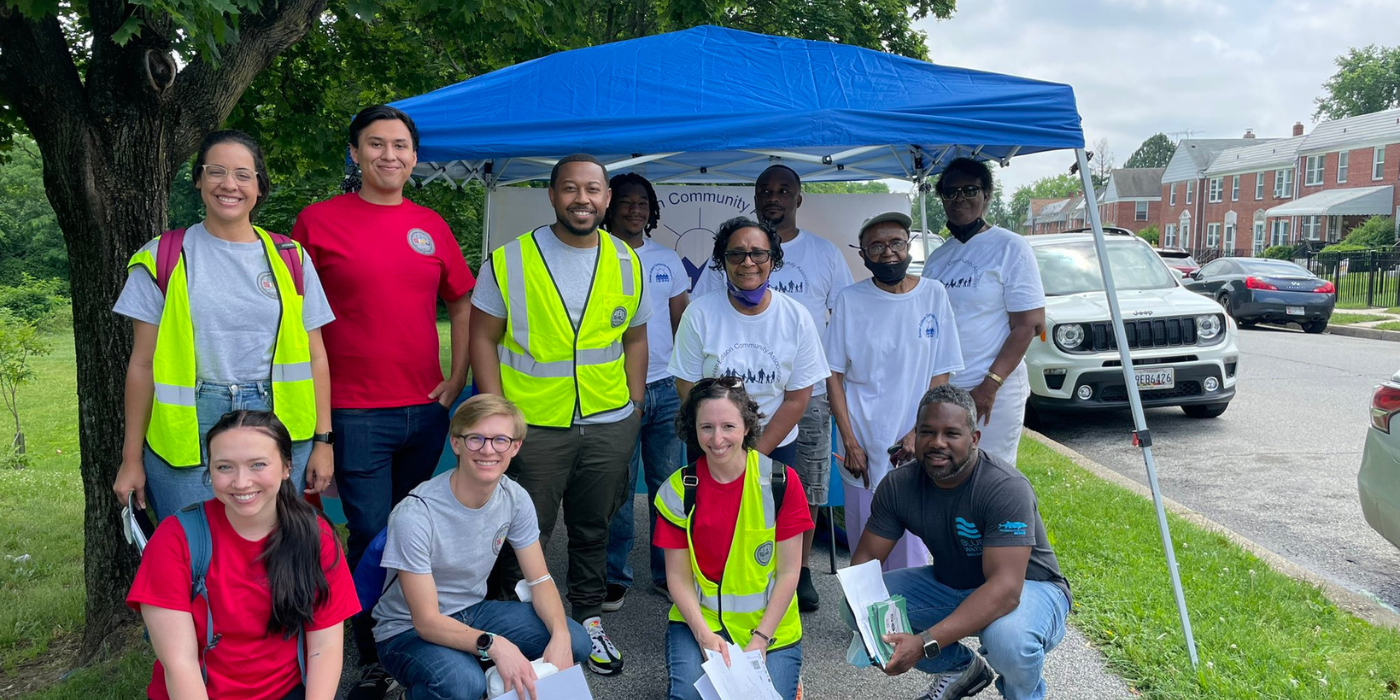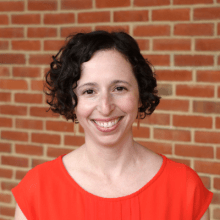We are a community-driven rapid response research team to sanitary sewer overflows, household backups, and environmental contamination.
PI: Rachel Goldstein (SPHL), Assistant Professor, Department of Global, Environmental, and Occupational Health
PI: Marccus Hendricks (ARCH), Associate Professor, Urban Studies and Planning, Director of the SIRJ Lab
Additional Team Members:
- John Junior Abu, Master's of Community Planning Student in the Stormwater Infrastructure Resilience and Justice (SIRJ) Lab
- Priscila B. Ramalho Alves, Lab Manager and Post-doctoral Associate of the Stormwater Infrastructure Resilience and Justice (SIRJ) Lab
- Nick An, Doctoral Student in the Environmental Health Sciences Program at the University of Maryland School of Public Health
- Brienna Anderson-Coughlin, Post-Doctoral Associate in the in the Environmental Health Sciences Program at the University of Maryland School of Public Health, Global Environmental, and Occupational Health Department (GEOH)
- Claire Barlow, Doctoral Student in the Environmental Health Sciences Program at the University of Maryland School of Public Health, Global Environmental, and Occupational Health Department (GEOH)
- Kathryn Dixon, Doctoral Student in the Environmental Health Sciences Program at the University of Maryland School of Public Health, Global Environmental, and Occupational Health Department (GEOH)
- Shachar Gazit-Rosenthal, Project Manager for the Water Emergency Team
- Maeghen Goode, Doctoral Student at the University of Maryland School of Architecture, Planning & Preservation
- Sofia Santos, Community Engagement Coordinator for Prince George's County and Montgomery County
- Ralinda Wimbush, Community Engagement Coordinator for Baltimore
Grand Challenges
Grant Type: Team Project Grant
Topics: Water, Social Justice, Health, Climate Change
Colleges Represented: SPHL, ARCH
Exposure to raw sewage from failing infrastructure can lead to negative health outcomes, distress, and feelings of disenfranchisement, particularly in marginalized urban communities. Sanitary sewer overflows (SSOs), the release of untreated sewage from a municipal sewer system, affect several cities around the world, with as many as 75,000 occurring each year in the United States. Baltimore experiences frequent SSOs and household basement backups due to aging and failing sewer and stormwater infrastructure. As a result, communities are persistently exposed to raw sewage, likely containing waterborne pathogens and possibly antibiotic-resistant (AR) bacteria. While AR bacteria have been identified in wastewater at wastewater treatment plants, no studies have comprehensively evaluated exposure to these pathogens from SSOs or backups, nor the impact of physical damage to the home and infrastructure on communities. This project addresses these knowledge gaps by developing a community-driven rapid response Water Emergency Team (WET) to respond to SSOs and backups in underserved African American communities in Baltimore and the surrounding region. WET will complete visual household inspections, conduct residential surveys and interviews about impacts and experiences with these events, collect water and surface swab samples from impacted indoor areas, and analyze samples for AR bacteria, reporting results back to the community. WET will work directly with community organizations and neighborhood associations throughout the project, including translating research findings into an outreach program with the goal of empowering affected communities and informing local policymakers. Climate change will only continue to stress the U.S.’s crumbling infrastructure, disproportionately impacting marginalized communities exposed to raw sewage. The Water Emergency Team has the expertise, experience, and community partnerships to address these issues, bringing national attention and visibility for the university and communities alike.
Stay up to date with the latest WET Lab news and events.
What's Happening Now:
- Stormwater Hits D.C.’s Poorest Neighborhoods Hardest, UMD Study Finds (June 3, 2024)
- Priscila Alves Presents at Community Forum, Environmental Justice and You: Stormwater Management at the Mount Rainier Nature Center for Her Talk Titled “Connections Between Environmental Justice, Climate Resilience, and Stormwater Management” (October 7, 2023)
- Rachel Goldstein Receives $1.3M NIH New Innovator Award to Support WET Project (October 3, 2023)
- Rachel Goldstein and Priscila Alves Present at the American Water Resources Association (AWRA) 2023 National Capital Region Water Resources Symposium on Friday, April 14, 2023
Where is WET Now?:
2024:
- Tuesday, February 27, 2024
Sandtown Community Meeting - Friday, September 6, 2024
University of Maryland First Look Fair - Saturday, September 7, 2024
Hyattsville Community Health and Wellness Fair from 10 AM - 2 PM - Sunday, October 6, 2024
Montgomery County Hispanic Heritage Month Fair and Festival 2024 from 12 PM - 5 PM


